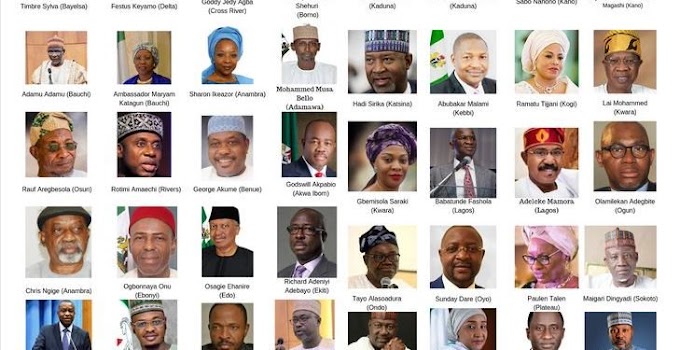Digital government is the way forward for any government that wants to make a difference in the way it communicates or go about its governance business.
Aside meeting in-person or learning about your organization on the national dailies, the very first connection a citizen is most likely to make with your agency for an improved engagement is through your organization's official website.
In today's digital government, a well optimized and functional organization’s website can be one of the greatest gift a government can give its citizens because a website is an essential tool for meeting the needs of your citizens.
Now having a website is not just enough, but optimizing it around the citizen experience is the thing. I also like to call an optimized government website a " citizen action driven website.
Websites are key to driving a digital experience governance. A website should serve as a final source for information or activities going on in an agency. Many government bodies resort to traditional news medium like TV stations, Radio FM stations and newspapers to pass information, but the question remains; how long will these news remain accessible to the citizens or those that have business with the agencies.
While watching and listening to news is still part of digital strategy for an improved governance, government agencies still need to take this news further to their domains so the news will remain accessible even after the day it made the announcement or held an event.
A very recent and good example of a functional website
The recent NNPC fresh graduates recruitment for 2019 is a good example of a functional government website that drives citizen inclusion.When the news broke out on the national dailies, TV and radio stations, many Nigerians still preferred to access the news right from the source, the NNPC Group's official website where the group made official the recruitment news. Now, NNPC may have held an event to inform the public about its 2019 recruitment and as well employ the services of journalists, TV and radio stations, but if the information was not made available on its website it would have been unprofessional and many Nigerians who would prefer to access news or information via the internet would have been disappointed at the end of the day.
Still on the usefulness of website as a tool for digital strategy, when the deadline date for the NNPC recruitment came, the group also through its official website announced the closure of the recruitment portal using the same URL so that anybody who is doubt or want to verify first hand from the group can do so by visiting the NNPC website.
Absence of active website kills digital governance
Sadly a handful of government agencies don't have an active website and there are activities that goes on in these agencies that require the inclusion of the Nigerian citizens.When a government agency operates without an active website, it shows to an extent the inability of public institutions to fully translate national or their vision, policies, programs, plans and strategies into effective enterprise change and public value.
Just recently, the National Information Technology Development Agency (NITDA) revealed that most federal government ministries, departments and agencies (MDAs) operate without active websites.
Dr Isa Ali Ibrahim Pantami, the director-general, National Information Technology Development Agency (NITDA) made this revelation at the Stakeholders’ Engagement on Nigerian Government Enterprise Architecture (NGEA) which held in Abuja on March 28, 2019.
According to Dr Pantami, only 4.72 percent of the country’s MDAs could boost of interactive and very active websites that could offer complete transactions online on the services they offer.
In his words, the NITDA boss said ‘’This has prevented IT, to some extent, from becoming an asset shaping strategic future opportunities of public institutions and the Government as a whole. The implication and consequence of all these is high rate of IT projects failures."
He further revealed that out of 106 MDAs surveyed by the NITDA, only 4.72 % of them were at the enhanced and connected stages of United Nations’ e-Government maturity model respectively.
‘’The interpretation of this is that most of the FPIs have interactive websites that cannot offer complete transactions online for a service’’, Dr Pantami added.
Having a functional website no doubt is one of the key steps the government MDAs should start adopting in 2019. A lot can be achieved by doing this and most importantly, the Nigerian citizens who are the beneficiaries of these various government programmes and initiatives will stay informed and included in today's business of governance.
In the Part TWO of this article, I will be sharing some key website digital experience strategies which the today's government and industry leaders can apply to drive a "People Inclusion Government."







